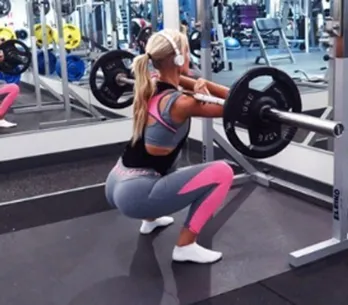High protein diet
 Although most people would be highly doubtful that eating a diet consisting of lean meats and cheeses could cause you to lose weight, the reality is that piling in some poultry will have a dramatic effect on your body.
Although most people would be highly doubtful that eating a diet consisting of lean meats and cheeses could cause you to lose weight, the reality is that piling in some poultry will have a dramatic effect on your body.
Unlike many fad diets, a protein rich diet has many real benefits for anyone wishing to try it, whatever your goals. Pumping up your protein will allow you to tone your muscles rather than seeing them melt away like in low calorie diets, burn extra calories and simply get a load more energy.
They first appeared in the 1960s and proved so successful that they've remained as one of the chief ways to become body beautiful ever since.
Of course any diet worth its weight in salt will be snapped up by Hollywood, and the high protein diet is no exception.
Celebrity fans include Kate Hudson (look at those abs), Brad Pitt (phwoar) and Beyonce (need we say more), being high on protein seems to be the way forward no? So lets find out how to do it!
How a high protein diet works:
Protein based diets involve getting at least the recommended daily amount of protein (1g per kilo of body weight or 15%-35% of your calorie intake) to ensure muscle building, maintaining energy levels and simultaneous weight loss.
Some methods differ but most diet plans will include an initial phase which cuts out sugar and carbs, includes very little fat and then reintroduces them into the diet little by little, as and when needed.
High protein diets are based on 'natural' or 'real' protein (you only eat food that's naturally high in protein and low in calories: yoghurt, eggs, lean meat and fish) or protein preparations in sachets (you replace one or two meals a day with protein soups, bars or shakes) or a combination of the two.
As your fat content is so low and the protein content of your diet so high, you are able to shed lots of fat without losing the muscle. High protein foods take more work to digest, metabolize and then release into the body and stay in the digestive system for longer.
They also release more energy plus the amino acids in the protein helps to build muscle as well as keeping your metabolism ticking over when you're not active so that you're still burning calories.
The results:
Within two weeks of switching to a high protein diet you will able to see huge differences in your body. Not only will you have lost weight and if you're doing exercise too, those muscles will be more toned, but also you're energy levels will be noticeably higher.
Typical day:
Protein is essential for the body and it should make up at least 15% of your daily food intake, if you're on a high protein diet this should be bumped up to about 35% of our calorie intake.
Breakfast: Poached eggs with ham, oatmeal with honey or a protein shake.
Snack: Protein shake or high protein snack bar.
Lunch: Lentil soup, tuna topped rice cakes with cherry tomatoes, or pulled pork sandwich.
Snack: Cashew nuts, sesame seeds or protein shake.
Dinner: Grilled steak with green beans and mushrooms, Salmon fillet with a ginger glaze asparagus and sweet potatoes, grilled chicken with veg.
Protein is readily available in foods from animal sources such as meat, poultry, rabbit, cured meat, fish, eggs, shellfish, dairy products and cheese, and also in foods from plant sources like whole grains, vegetables, soy, seeds, nuts, roots and mushrooms.
Plus points: Weight loss is often rapid and substantial on a protein diet, even in people who struggle to lose weight as protein naturally suppresses your appetite and is super filling.
You won't end up exhausted after the tiniest bit of exertion as your energy levels are so high, so you can maintain a rigorous exercise regime.If you eat a low calorie, low protein diet your muscle mass will melt away.
If you eat a high protein diet, fat melts away. Muscle also takes up less volume than fat (making it easier to squeeze into that size 10 dress!) and also burns calories continuously, unlike fat.
Most importantly high protein diets aren't dangerous for the body, as long as you still get a balanced diet. Quite the opposite: they improve your base metabolism, hormone functions, immunity, bone density and cardio-vascular health.
Downsides:
Eating excessive protein in place of fat and carbs leads to a build-up of waste which can cause bad breath and increase the workload on the liver and kidneys.
Monotonous and restrictive, a high-protein diet can cause diet depression, and it can be difficult to keep the weight off, especially if you don't include a stabilisation phase. As a long term form of weight loss, there are many failures.
Tips:
The protein diet is ideal if you want to lose weight quickly, but it's not as suitable if you want to learn good eating habits.
You're always better off eating 'real' protein rather than sachets (use these for a quick fix or to make up for a blow-out). Pre-prepared meals are not very appetising or filling.
You can vary your meals with 'real' protein, as well as eat out and/or in company!
However, remember the importance of a stabilisation phase that reintroduces carbohydrate and fat back into your diet gradually.
More Information:
Find the right diet for you from our huge selection of diet plans in our comprehensive Diet A-Z.
Other diets to try...

Lemon dietGluten free dietRaw food diet
Blood type dietBikini diet Dukan diet















